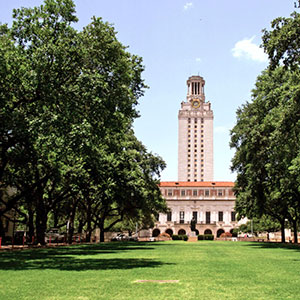バートランド・ラッセルの幸福論 (Bertrand Russell's Theory of Happiness)

バートランド・ラッセル著「哲学入門」 ちくま学芸文庫
今日、世界の三大幸福論と言えば、ヒルティの『幸福論』(1891年)、アランの『幸福論』(1925年)、ラッセルの『幸福論』(1930年)を指すようだ。
ラッセルの『幸福論』
先日、Tim Delaney and Tim Madigan が著した Friendship and Happiness and the Connection Between the Two (McFarland, 2017) を読んでいたら、ラッセルの『幸福論』を上手くまとめていたので、ここで紹介したい。
興味深いことに、ラッセルは「幸福」より「不幸」について、多くの言を費やしている。
Russell spends more time in Conquest discussing the causes of unhappiness than he does the causes of happiness. He acknowledges that some of the many causes of unhappiness have their root in the social system, and others are the result of one’s own psychology.
(訳) ラッセルは『幸福論』の中で、幸福の原因より、不幸の原因を論じることで、多くの時間を使っている。多くの不幸の原因は、社会システムに根源があり、その他の原因は、人間の心理状態の結果であると、ラッセルは論じている。
人間が不幸になる原因を、ラッセルは次のように説明している。
Addressing the issue of individual psychology, Russell states that here unhappiness is caused largely by “mistaken views of the world, mistaken ethics, mistaken habits of life, leading to destruction of that natural zest and appetite for possible things upon which all happiness, whether of men or animals, ultimately depends. These matters lie within the power of the individual, and I propose to suggest the change by which his happiness, given average good fortune, may be achieved”
(訳) 個人の心理的問題を検討して、不幸の原因は主に以下のことにあると、ラッセルは論じている。「世界に対して間違った考え方や生活の間違った習慣に、不幸の原因はあり、それらが人であろうと動物であろうと、すべての幸福が究極的に依存する実現可能な事物に対する生来の熱意や欲求を破壊する。これらのことは、個人の力でどうにでもなるので、通常の幸運さえあれば、その人の幸福は達成される改革を、私は提案したい」
バイロン的不幸
ラッセルの幸福論で面白い箇所は、「バイロン的不幸」という概念を作り出しているところである。その概念をラッセルは次のように説明する。
The concept of Byronic unhappiness harks back to the characteristics and poetry of the English Romantic poet Lord Byron, especially his romanticism, melancholy, and melodramatic energy. Essentially, the Byronic individual has a self-absorbed, brooding personality: the term may further describe a proud, moody, cynical, defiant and lonely person.
(訳) 「バイロン的不幸」という概念は、イギリスのロマン派詩人バイロン卿の特性や詩、特に彼のロマン主義や憂鬱や感傷的なエネルギーにまでさかのぼる。本質的に、バイロン的な人は、自己陶酔型で、考え込む性格であり、この言葉はさらに、誇り高く、不機嫌で、皮肉屋で、傲慢で、孤独な人の特徴を表現している。
それでは人生に幸福をもたらすものは、何であろうか。ラッセルはまず最初に zest (強い興味) を挙げている。
Russell points out that the more things a person is interested in, the greater the opportunities for zest, and so, happiness. He especially promotes the value of affection, both toward and from others.
(訳) 人が多くのことに興味を持てば持つほど、強い興味を感じる機会は多くなり、それが幸福へと続くと、ラッセルは指摘している。彼は特に人に対する愛情や人からの愛情の価値を奨励する。
その他にラッセルが挙げている幸福をもたらすものは、家族や仕事の存在等である。
達成できないことは諦めること
私が特に面白いと感じたのは、達成ができないことは諦めることが肝心だと、ラッセルが言っていることである。どんなに努力しても獲得できないもの、達成できないものは、早々に諦めることが、幸福を達成する近道だと、彼は説いている。これは彼独自のするどい考察だと思われる。
Thus Russell argues that a wise person will learn to resign from the pursuit of desired but unattainable forms of happiness, so as not to interfere with pursuing the attainable forms. He says, for example, “Nothing is more fatiguing, nor, in the long run, more exasperating, than the daily effort to believe things which daily become more incredible. To be done with this effort is an indispensable condition of secure and lasting happiness”
(訳) 賢明な人は、獲得可能な種類の幸福を追求する邪魔にならないように、望ましいが獲得できない種類の幸福を追求することをあきらめるであろうと、ラッセルは論じている。例えば、彼は「日ごとに信じられなくなる物事を信じようとする毎日の努力ほど、疲れることはなく、結局はイライラさせられることはない。このような努力に決着をつけることが、確実で永続する幸福の必要欠くべからざる条件である」と言っている。
現実の到達できない希望を諦めることは、幸福の絶対条件だとする、ラッセルの見解は正しいと思われる。世の中には、明らかに実現できないことを願って、不幸になっている人がどれだけいることであろうか。
ただ何が実現できて、何が実現できないかを判断することは困難である。だからすべてのことを、まずは試してみることが重要であろう。


